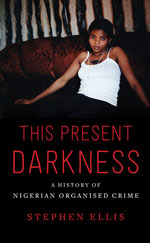New publications
New publications by ASCL staff and affiliates, and new books in our series, are frequently highlighted on this website. You may also use this RSS feed to keep informed. All recently added publications can be found in our database.
 Commissioned by the Food & Business Knowledge Platform, this scoping report aims to contribute to a more contextualized comprehensive picture of The Netherlands’ government's ongoing cooperation with West Africa and the perspective in terms of policy options for strengthening its effectiveness and coherence by giving more emphasis to the promotion of intraregional trade and investment.
Commissioned by the Food & Business Knowledge Platform, this scoping report aims to contribute to a more contextualized comprehensive picture of The Netherlands’ government's ongoing cooperation with West Africa and the perspective in terms of policy options for strengthening its effectiveness and coherence by giving more emphasis to the promotion of intraregional trade and investment.
 A new cohort of Muslim youth has arisen since the attacks of 9/11, facilitated by the proliferation of recent communication technologies and the Internet. By focusing on these young people as a heterogeneous global cohort, the contributors to this volume - coedited by senior researcher Benjamin Soares - show how the study of Muslim youth at this particular historical juncture is relevant to thinking about the anthropology of youth, the anthropology of Islamic and Muslim societies, and the post-9/11 world more generally.
A new cohort of Muslim youth has arisen since the attacks of 9/11, facilitated by the proliferation of recent communication technologies and the Internet. By focusing on these young people as a heterogeneous global cohort, the contributors to this volume - coedited by senior researcher Benjamin Soares - show how the study of Muslim youth at this particular historical juncture is relevant to thinking about the anthropology of youth, the anthropology of Islamic and Muslim societies, and the post-9/11 world more generally.
 The final book by the late Stephen Ellis, This Present Darkness: A History of Nigerian Organised Crime, was launched at the ASCL on 9 June. To mark this occasion, the ASCL Library has compiled a web dossier on Crime in Africa, with a special focus on Nigeria. The dossier is divided into four themes: Crime general; Illicit trade, drugs and human trafficking; Corruption and commercial crime; Police and Vigilante groups. It opens with a personal word on Stephen Ellis by ASCL director Ton Dietz, and a thematic introduction on crime and the quest for integrity by ASCL researcher Chibuike Uche. Read the web dossier.
The final book by the late Stephen Ellis, This Present Darkness: A History of Nigerian Organised Crime, was launched at the ASCL on 9 June. To mark this occasion, the ASCL Library has compiled a web dossier on Crime in Africa, with a special focus on Nigeria. The dossier is divided into four themes: Crime general; Illicit trade, drugs and human trafficking; Corruption and commercial crime; Police and Vigilante groups. It opens with a personal word on Stephen Ellis by ASCL director Ton Dietz, and a thematic introduction on crime and the quest for integrity by ASCL researcher Chibuike Uche. Read the web dossier.

